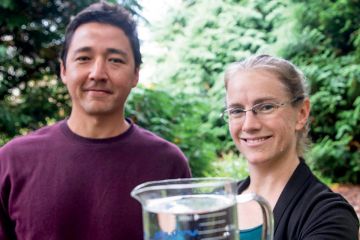
Safer water
Clean water, essential to global health, is the focus of two Civil Engineering research groups.

Clean water, essential to global health, is the focus of two Civil Engineering research groups.
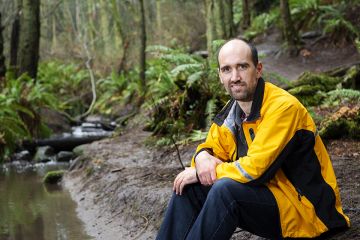
A UVic hydrologist is one of an international group of scientists and experts who are calling for action to protect global groundwater resources—which makes up 99 per cent of the Earth's liquid freshwater. Tom Gleeson is lead author of a Nature Correspondence article published this week that says we are not doing enough to protect and manage global groundwater resources from contamination, salinization, depletion and neglect.
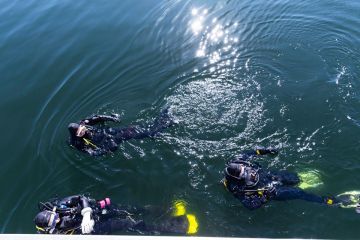
UVic’s scientific diving program has given three decades of students the tools, training and hands-on learning they need to safely and successfully conduct research under water.

Canada's sea levels are rising

University of Victoria faculty members are available to media to discuss Canada’s Changing Climate Report released April 2 by Environment and Climate Change Canada.
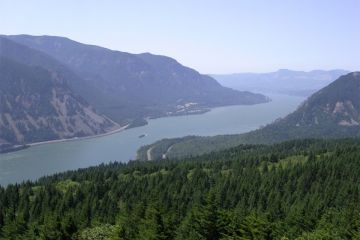
International experts gathered at UVic this year to offer solutions for a modernized Columbia River Treaty that reconciles Indigenous rights. The one-day symposium brought together approximately 200 participants from both sides of the border.
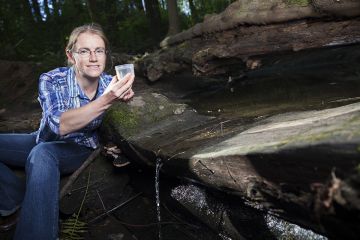
Even decades after a mine closes, people in surrounding communities can face serious health risks from drinking contaminated water. Communities in BC’s North are particularly at risk of arsenic poisoning due to the legacy of gold and uranium mines, says University of Victoria green chemist and professor of civil engineering, Heather Buckley.

Nuha Omer Elgindi has always believed that commerce could be about more than just making a profit. Born in Sudan and raised in Tunisia and the UK, Elgindi says her early environment played a key part in making sustainability one of her earliest, deepest values.

Even decades after a mine closes, people in surrounding communities can face serious health risks from drinking contaminated water. Communities in BC’s North are particularly at risk of arsenic poisoning due to the legacy of gold and uranium mines, says Heather Buckley, green chemist and professor of civil engineering at the University of Victoria.
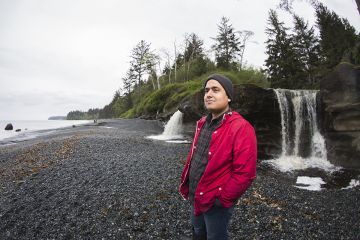
Entrepreneur and mechanical engineer Devesh Bharadwaj was still a UVic undergrad when he founded Pani Energy Inc. in March 2017 with a vision of providing clean water and energy to the world through affordable technologies that reduce emissions and costs.
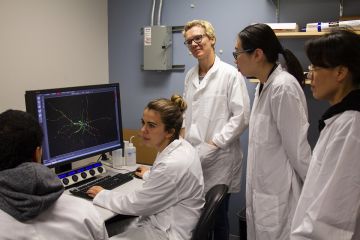
From a cheap and easy way for mining- impacted communities to test their drinking water to a powerful microscope able to observe the tiniest “workhorses” of our cellular system, UVic researchers are putting Canada Foundation for Innovation (CFI) grants to work to address some of the world’s most daunting problems.

From a cheap and easy way for mining-impacted communities to test their drinking water to a powerful microscope able to observe the tiniest "workhorses" of our cellular system, University of Victoria researchers who received Canada Foundation for Innovation grants in April are working to address some of the world's most daunting problems.
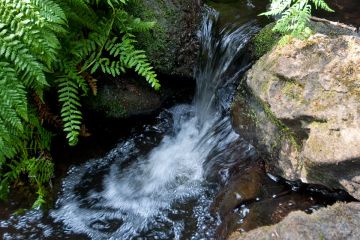
Collaborative consent provides a powerful way to tackle difficult questions about how Indigenous and non-Indigenous governments can work together to make decisions about water and land use, according to a report that uses BC’s new Water Sustainability Act as a prime opportunity for its use.
Array

Collaborative consent is proposed as a new approach to give Indigenous nations a more equitable role in decisions. BC's new freshwater legislation is a prime example where the model could be used, says a report by the POLIS Water Sustainability Project and Centre for Indigenous Environmental Resources.

Five UVic projects, with $823,000 in new funding from a leadership fund from the Canada Foundation for Innovation as part of a $52-million federal investment announced Aug. 15, will carry out ground-breaking research including in an aquatic disease research facility at UVic.